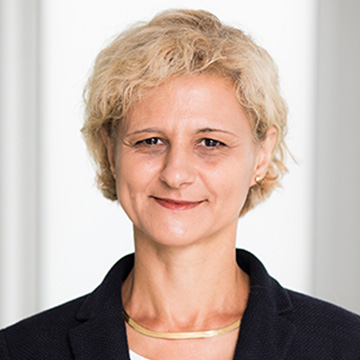Computational & Mathematical Finance
The computational and mathematical finance concentration combines financial theory with a solid grounding in quantitative methods, as you will model and analyze the complexity of financial decisions under uncertainty.
Where the Computational & Mathematical Finance Concentration Takes You
It’s a great path for those interested in careers as financial actuaries and analysts and in fields such as risk management, asset management, trading, investment banking, commercial banking, corporate finance consulting, and strategic planning.
What You Will Study
This concentration blends the best of Babson’s curriculum, with strong foundations in the business world, financial math competencies, and the liberal arts and sciences. Advanced computational finance courses are designed to provide in-depth knowledge of financial markets and instruments, while advanced math and science courses emphasize mathematical derivations, rigorous analytical thinking, financial mathematics for actuaries, state-of-the-art software tools, and building statistical, machine learning, simulation, and optimization models.
Our concentrations are designed to help you specialize and explore within our bachelor's in business administration degree. The courses offered are comparable to what you will find in a computational finance major or minor, as well as in other computer finance programs, including a bachelor’s of science in computational finance and a quantitative finance bachelor’s degree.
Required Courses
This computational finance course is an introduction to simulation and optimization techniques that enable marketing, finance, and management professionals to make optimal decisions under uncertainty. You will acquire a foundational understanding of the theoretical background for these techniques, as well as experience implementing them with software tools that are widely used in the financial industry. Classes draw on examples such as asset allocation under different definitions of risk; index tracking; derivative pricing, hedging, and arbitrage.
Electives
As part of your coursework in the concentration, you will take some of these computational and mathematical finance courses:
Today, businesses know that to remain competitive, they have to use advanced analytic tools in their decision-making process. In our quantitative finance courses, like this one, you work with unstructured data and apply tools like random forests and artificial neural networks. You also get a chance to build out your coding skills, so you don’t just understand the data but you understand the technology you are using, which will be applicable across quantatative analysis programs.
This financial math course is designed to introduce key financial technology and its applications in financial services. You will develop a broad and solid understanding of the recent innovations in FinTech, and their benefits and limitations. You will also experience hands-on problem solving that will be useful in FinTech ventures.
Explore the entire list of computational and mathematical finance courses.
You Will Learn From the Best
At Babson, our faculty are experts, innovators, and forward thinkers in their chosen fields. Here are just some professors sharing their expertise and support with our students in the mathematical and computational finance program.

Richard Bliss
Richard Bliss has been involved in corporate and entrepreneurial finance since 1987, with industry experience that includes time at Touche Ross & Company in New York as a consultant, and senior financial positions at Van Camp Seafood Company and Safety One, Inc., a specialty chemicals start-up. He teaches at the undergraduate, MBA, and executive levels, specializing in the areas of corporate financial strategy, sustainability, risk management, and entrepreneurial finance.

Dessislava Pachamanova
Dessislava Pachamanova is an expert in the design and application of advanced analytical tools such as robust optimization, simulation, predictive analytics, and natural language processing to numerous fields, including financial risk management, healthcare policy and operations, marketing, business strategy, legal studies, and engineering.
Have Questions?
Faculty Contacts: Dessislava Pachamanova and Richard Bliss
Sponsoring Divisions: Mathematics, Analytics, Science, and Technology and Finance